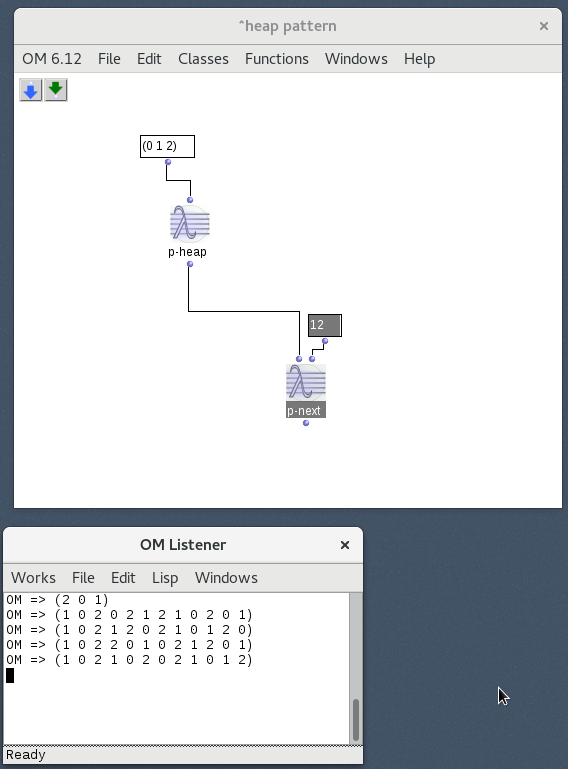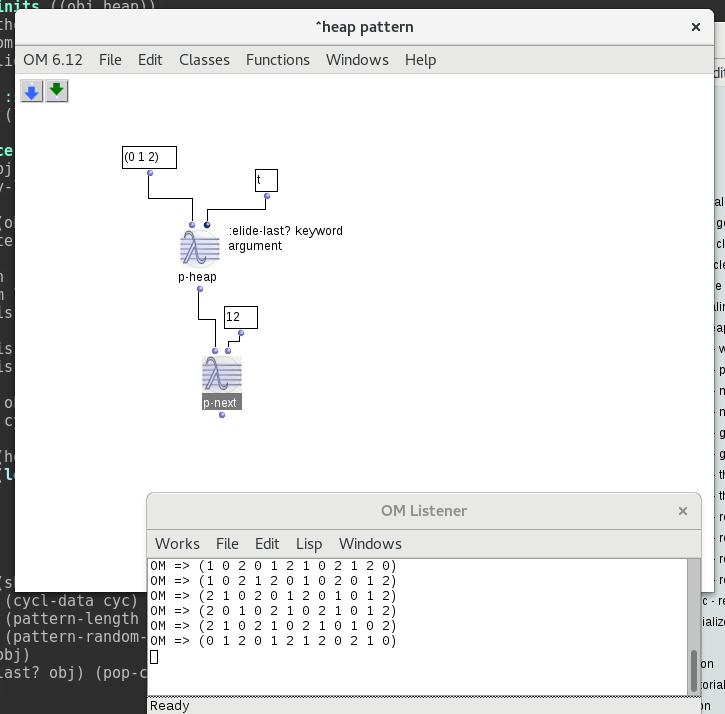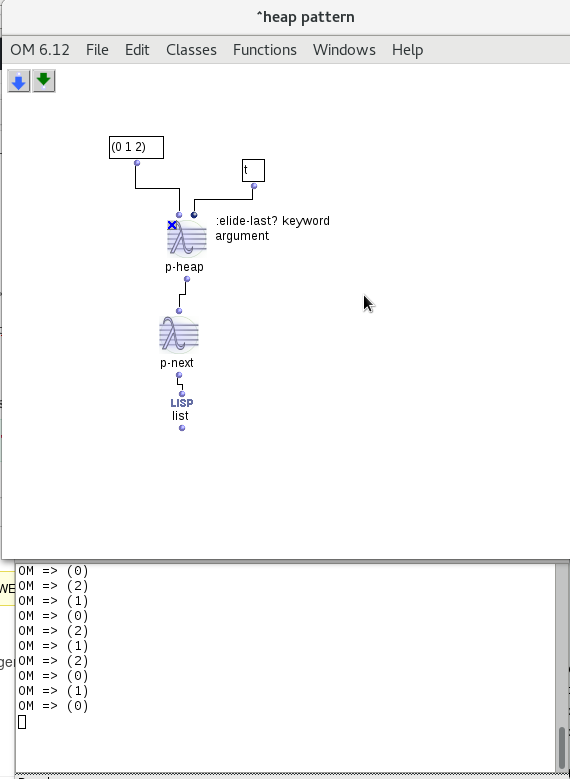Hello All,
I was wondering if anyone might be able to suggest a solution…
I have a list (0 1 2) from which a single integer should be returned each time the function is called, eg. (0) (1) (2) (1) (0) (2) (0) (1) etc., without a repeated integer. To be clear, this: (0) (1) (2) (1) (0) (2) (0) (1) etc. is good, this: (0) (1) (2) (0) (2) (2) (1) (0) (0) (0) (1) (2) (2) (0) etc. is bad.
I’ve tried nthrandom selecting from (0 1 2), permut-random with first-n, om-random, and others, but all generate a duplicated integer from the list (0 1 2). Is there a way to avoid the duplication?
Thanks very much in advance!!



